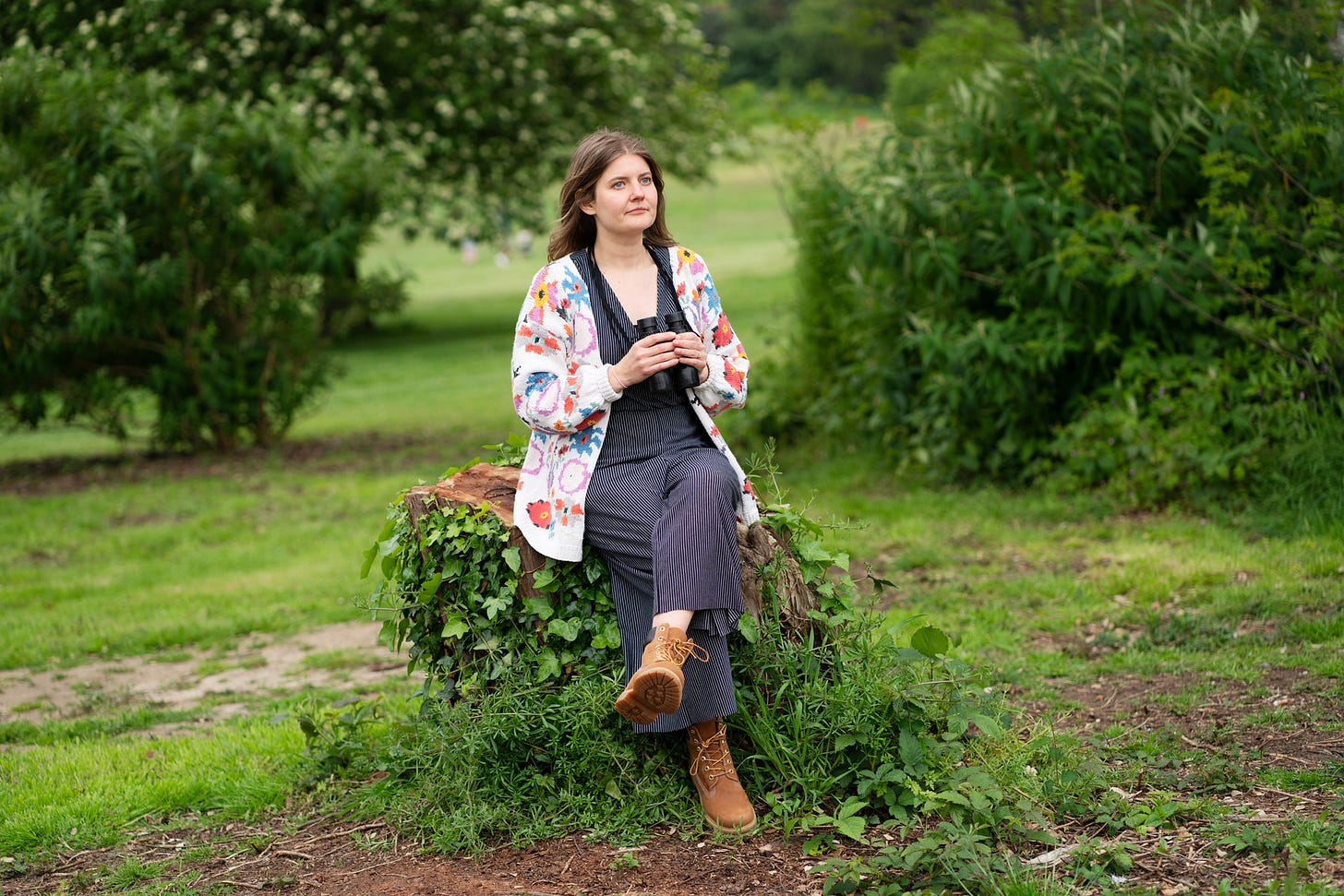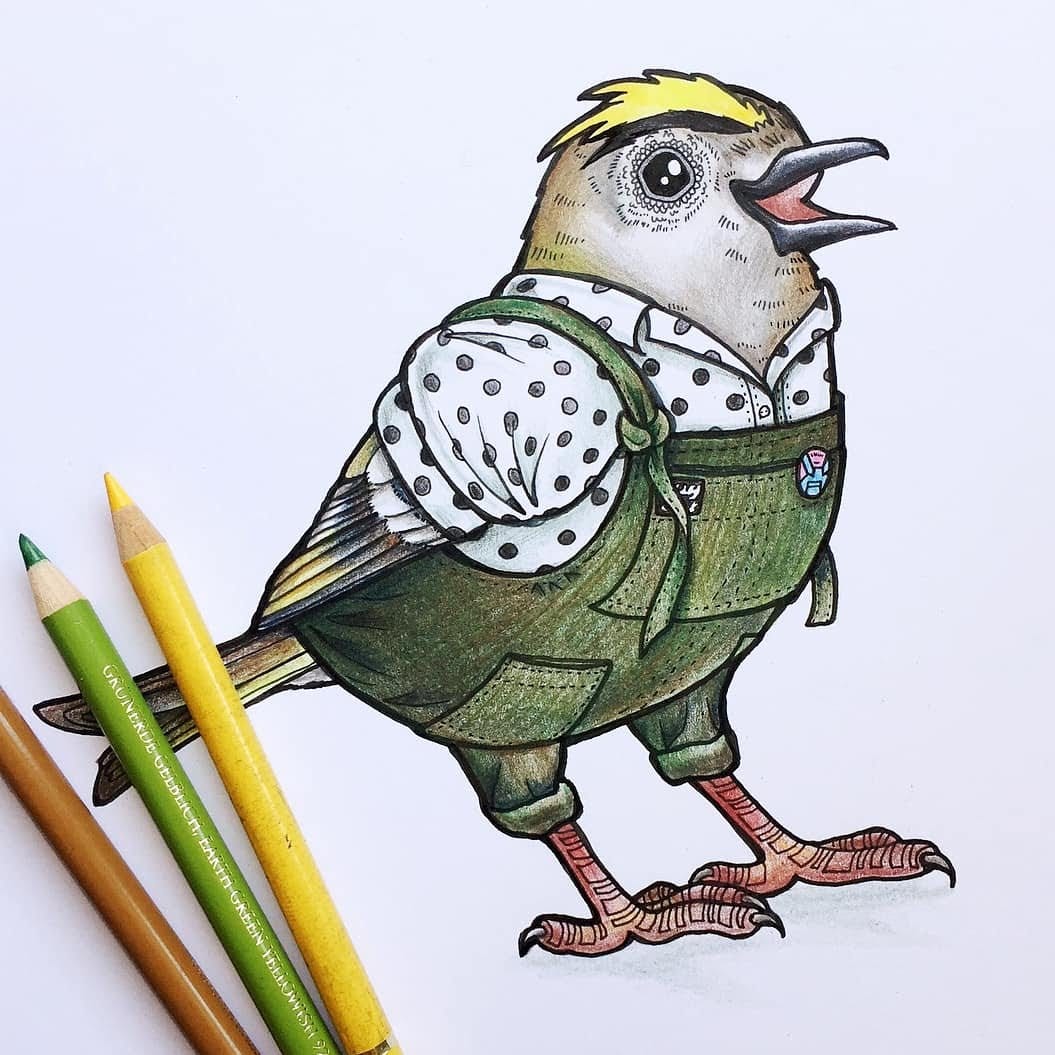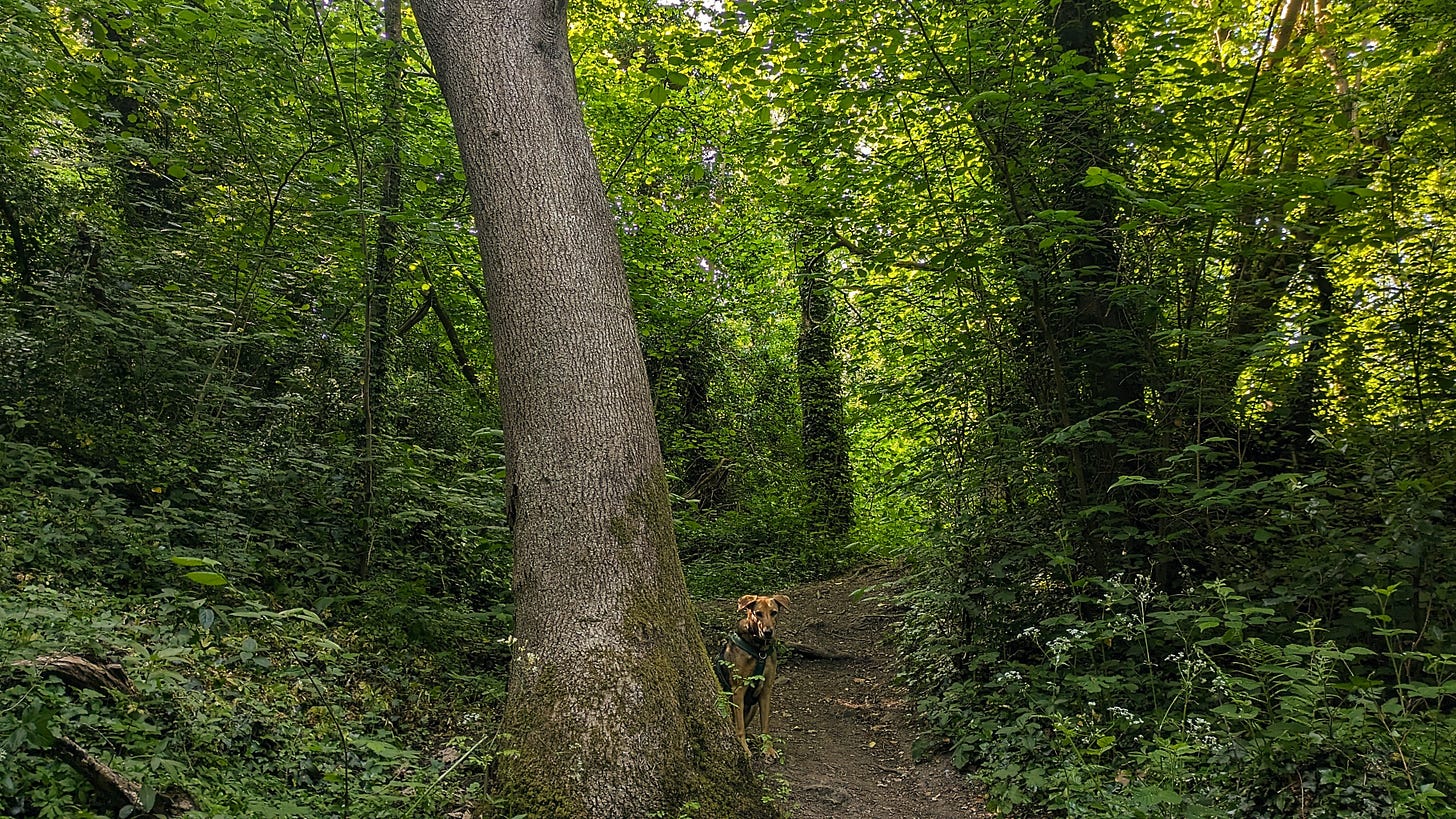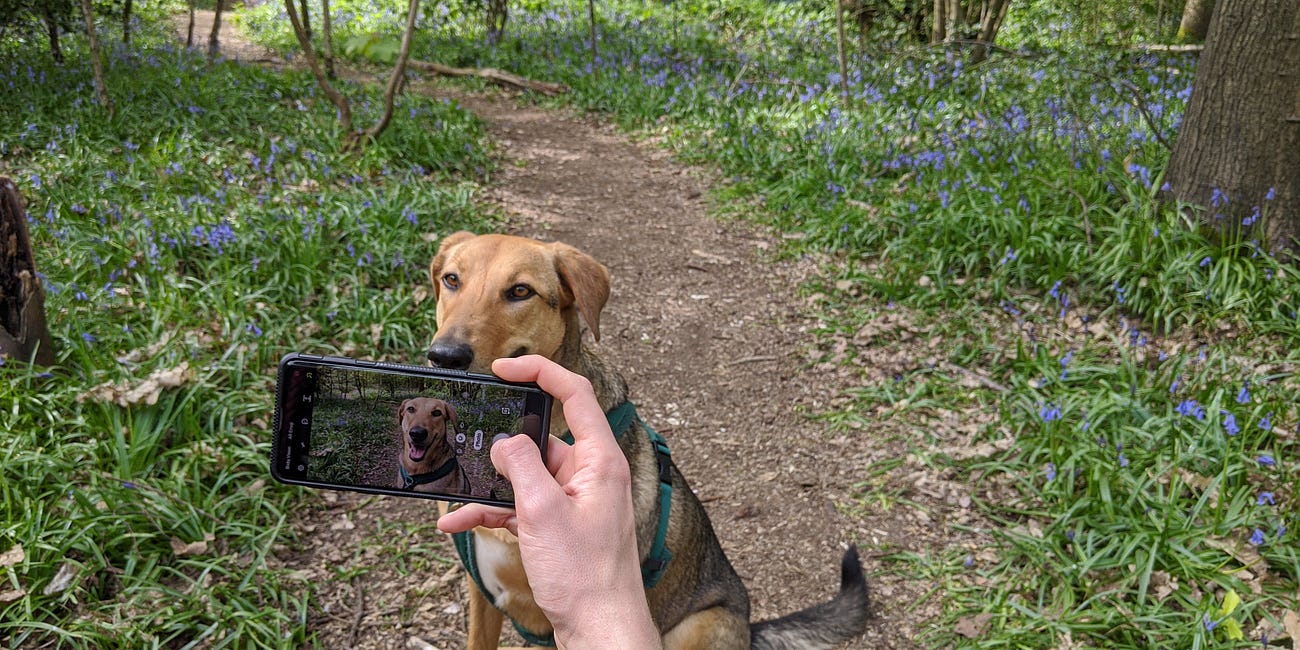Walking along the lane near my house recently, something made me stop. Birdsong. But what was it? I got my phone out and recorded the song on Merlin. A linnet, it said. Ooh! I didn’t even know there were linnets where I live. I can only remember noticing them near the coast, so I think I’d just assumed that was their only habitat, but since my Merlin awakening, I’ve heard or seen linnets on many more occasions near home (though I do still have to use the app to check sometimes when I can’t see the birds and their pretty pink chests).
I learnt the song of the blackcap in a similar way too. Somehow, while walking in the woods I’d walk in every day in South London, my brain registered birdsong I wasn’t familiar with. I scanned it with an app and discovered it was a blackcap. A year later, in the woodland near my new home in Kent, my partner stopped when he noticed an unfamiliar song. “I think that’s a blackcap,” I said… and was chuffed to get confirmation from Merlin that I was correct. It’s always nice when things you have learnt actually stick.
While out in the same stretch of woodland lately, I let Merlin record for an hour or so as I walked, and was gutted to discover that, among the many birds the app had detected, were a cuckoo and a goldcrest. I had heard neither with my own ears. Or, perhaps more accurately, if I had heard them, I hadn’t noticed.
I love goldcrests (they’re the UK’s smallest birds!), but I have only ever seen two, so if there are some a short walk away from my house, I must seek them out.
I’ve been desperate to hear a cuckoo all spring, with no luck. But perhaps I did hear one, and I mistook it for something else?
It’s important to note that it’s also possible Merlin got it wrong, and didn’t actually hear either of those birds (it’s an app after all and isn’t always 100 percent accurate).
Either way, now I have revision to do:
Learn the sounds a female cuckoo makes (if it was a male cuckoo I’m sure I’d have noticed it, as I’d know that sound anywhere… and cuckoo was my first word!).
Learn the goldcrest’s song, so I know when to look out for one.
The more I learn about nature, the more I realise just how much I don’t know. I can identify only a tiny sliver of birds by their song, and while - after a lot of studying and looking - I can now confidently ID a number of trees and plants, there are SO many more I’m still not familiar with.
One of the reasons I love nature so much is that I could (and will) keep learning for the rest of my life and barely scratch the surface of what’s out there. I will never know it all, and rather than be intimidated by that fact, I find it kind of comforting. I’m a part of this intricate, weird, fascinating web of life and I’m determined to learn as much about it as I can… and to learn it all over again when I inevitably forget it all!
I started this newsletter in the hope that some of the things I’d learn would stick in my brain a bit better if I also wrote them down, but also because it helps to learn alongside others. So thank you for being here, learning along with me. You sharing your own knowledge, experience and curiosity has helped me immensely - please keep it coming!
Your task:
This week, I want you to notice what you don’t know. Hear a bird you aren’t familiar with near your home? Scan it with Merlin and see what comes up. Listen to that song over and over (and over and over), until you’re really familiar with it. I bet you start noticing it more. The added bonus is that you’re bound to start to noticing the sounds you don’t know too… and it’s here the real fun starts!
P.S. Sorry for the lack of Nature Notice Board last week… I was celebrating with my friends at their wedding. It was a Sikh wedding and I hadn’t quite considered how busy I’d be with pre-wedding rituals, so I didn’t pre-prepare a newsletter, but I did think of you all a couple of times! On Tuesday there was a maiyan ceremony, where - amongst other rituals - the bride and groom’s family and friends were invited to rub their skin with a turmeric paste (it’s said to cleanse the skin and purify them before the wedding!). Directly in front of this colourful scene, a kestrel hovered for almost the whole time. A good omen if you ask me! On Saturday, as we arrived at the gurdwara for their anand karaj (the wedding ceremony), a chiffchaff provided the entertainment while we waited for the bride and groom. Unfortunately, on this occasion, the bride and groom did somewhat outshine the birds when they arrived… but I appreciated the avian presence in the meantime!
Sources and Further Reading
Merlin Birdsong app
Shriek of the Week: Blackcap: “It’s like they are fit to burst and need to pour it all out as quickly as possible.”
Shriek of the Week: Goldcrest: “Imagine the dinkiest of bicycles, wheels in need of a good oiling, running down a slope and falling over at the bottom. If that’s a bit of a stretch, ‘needly needly needly needly’ is a useful approximation for rhythm too.”
Tweet of the Day: Female Cuckoo: “Like bathwater gurgling down a plughole”
Top tip: Association (like imagining a goldcrest on a dinky, rusty bicycle falling off a slope) can really help when you’re trying to learn birdsong! Sometimes other people’s suggestions just don’t fit though… so ask yourself what you think the bird sounds like and it might just help you identify it in the future too.
You might also like…
How Your Phone Can Help You ID and Connect With Nature
My bestest, oldest friend send me a voicenote this week saying this newsletter has “turned her into more of a wildlife lover,” which made me very happy. My friend lives in the City of London with my two-and-a-half-year-old goddaughter where they have blue tits nesting outside their window and bees buzzing around their rosemary plants. Her daughter plant…










I've managed to get goldcrests to stick. To me they sound twinkly and glittery. And then that connects to gold in my mind. No idea if that's helpful yo anyone else! But it works in my brain. I hear them all the time now. We sometimes even get one in our garden 🥲
I was very lucky one day to have a male cuckoo fly across my binocular range, cuckoo-ing, closely followed by what I soon realised was a female cuckoo, making a sound like water being poured out of a milk bottle...never to be forgotten!